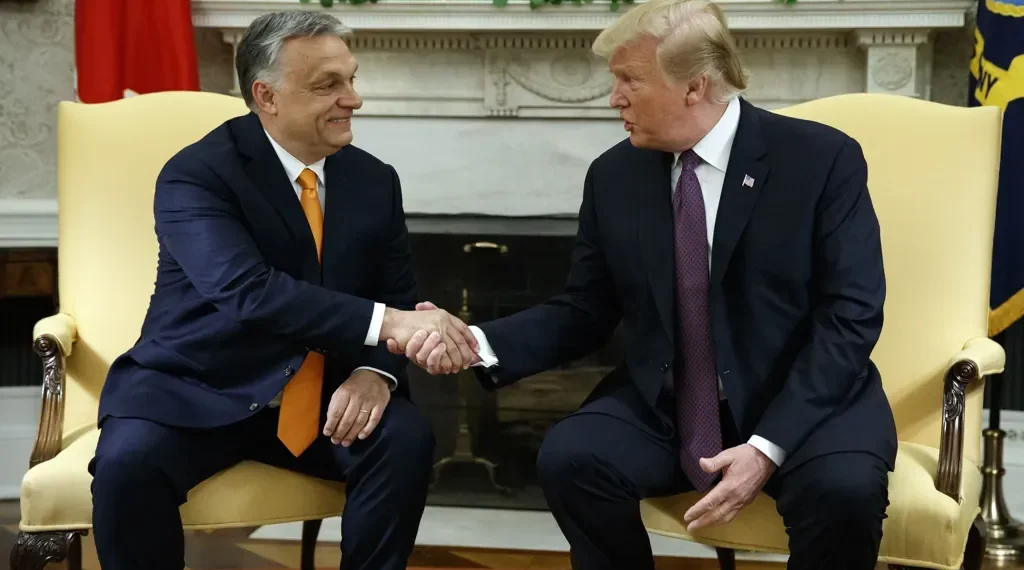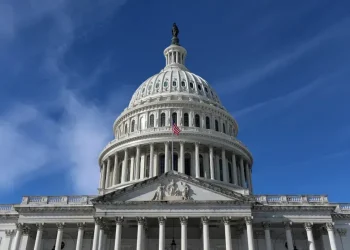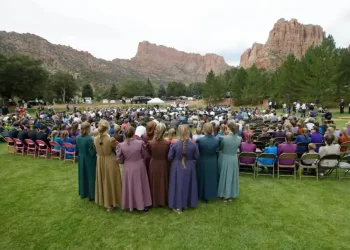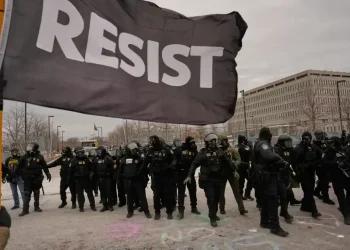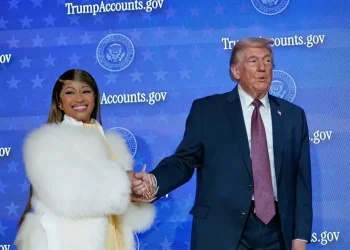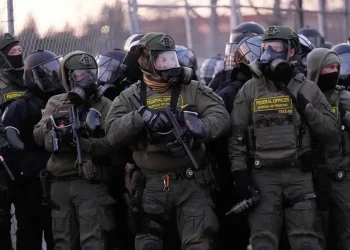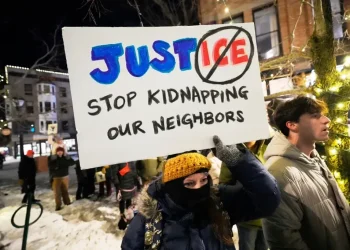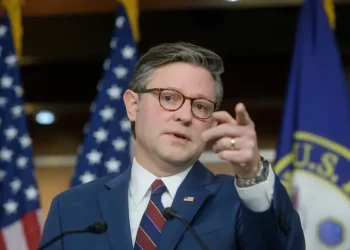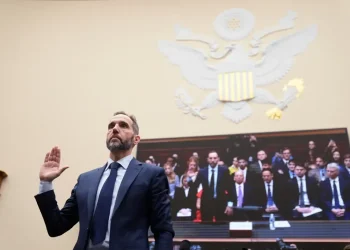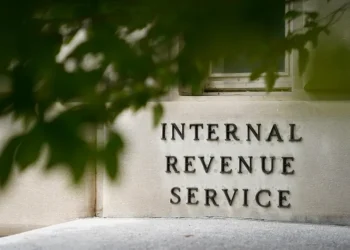Trump’s escalating fight with U.S. media echoes global press crackdowns, drawing comparisons to Orbán, Putin, and other authoritarian leaders.
Published Time 09-19-2025, 14:30 EDT
Since returning to the White House in January, President Donald Trump has launched an aggressive campaign against the press, comedians, and media outlets he deems hostile. His approach—marked by lawsuits, threats of license revocations, and public celebrations of show cancellations—has ignited debate over whether the United States is witnessing tactics long associated with governments that restrict free expression.
Observers warn that Trump’s efforts, while unfolding in the uniquely large and diverse American media landscape, bear striking similarities to authoritarian models abroad, particularly those employed by Hungarian Prime Minister Viktor Orbán, Serbian President Aleksandar Vučić, and Russian President Vladimir Putin.
Trump Celebrates Kimmel Suspension
On Wednesday, ABC suspended Jimmy Kimmel’s late-night show following remarks the comedian made about conservative activist Charlie Kirk and Trump’s “Make America Great Again” movement. Trump applauded the move on his Truth Social platform:
“Congratulations to ABC for finally having the courage to do what had to be done,” he wrote.
The suspension followed earlier moves against comedians who have criticized Trump. CBS canceled The Late Show with Stephen Colbert in July, officially citing financial reasons. Trump nonetheless celebrated the cancellation online, boasting, “I absolutely love that Colbert got fired. His talent was even less than his ratings. I hear Jimmy Kimmel is next.”
Both incidents, critics say, underscore a pattern: media companies making programming decisions under the shadow of political pressure.
The Shadow of Orbán: A Model for Trump?
Analysts note that Trump’s media strategy echoes Orbán’s in Hungary. Since taking power in 2010, Orbán has treated independent journalism as an adversary. He frequently brands critical outlets as “fake news,” borrowing Trump’s own terminology.
According to Reporters Without Borders, Orbán’s Fidesz party exerts control over roughly 80 percent of Hungary’s media market. In 2018, allies of the prime minister consolidated nearly 500 outlets into a government-friendly conglomerate, sidelining dissenting voices. Opposition parties have complained of being granted only the legal minimum of five minutes of airtime on public television during elections.
Hungarian media analyst Gábor Polyák described the trend bluntly:
“Here, they bought outlets and replaced editorial staff wholesale.”
In 2022, the European Parliament declared Hungary could no longer be considered a full democracy, citing media control as a central factor.
Polyák suggested that U.S. media companies’ rapid compliance with Trump’s threats surprised even seasoned European observers:
“Even with European eyes, it is very frightening to see to what degree individual bravery does not exist. From Zuckerberg to ABC, everyone immediately surrenders.”
U.S. Regulators Enter the Arena
Trump’s influence has not been limited to private companies. On the same day ABC suspended Kimmel, Federal Communications Commission (FCC) Chairman Brendan Carr warned on a conservative podcast:
“We can do this the easy way or the hard way.”
Carr also launched investigations into CBS and other public broadcasting outlets after Congress, at Trump’s urging, cut their funding. Trump has repeatedly suggested that regulators should consider revoking broadcast licenses for networks he accuses of providing “only bad publicity.”
Beyond television, Trump has pressured social media platforms. He has accused Meta of scaling back its fact-checking efforts because of his threats, which included the possibility of jailing founder Mark Zuckerberg.
High-Stakes Media Compliance
Even influential media owners appear to have made concessions. Reports indicate that Washington Post owner Jeff Bezos, whose businesses maintain significant federal contracts, withheld an editorial endorsement of Democratic nominee Kamala Harris before the 2024 election. Similarly, Meta and Disney-owned ABC reportedly reached multimillion-dollar settlements to resolve legal disputes with Trump.
The broader concern, analysts argue, is the chilling effect these developments could have on journalists, entertainers, and platforms tasked with holding power accountable.
Brendan Nyhan, a political scientist at Dartmouth College, summarized the stakes:
“What we’re seeing is an unprecedented attempt to silence disfavored speech by the government. Donald Trump is trying to dictate what Americans can say.”
Global Patterns of Media Crackdowns
Trump’s approach is not without precedent. Around the world, leaders have pursued policies that erode media independence, often under the guise of protecting national values or countering bias.
- Serbia: Under President Aleksandar Vučić, media outlets face political pressure, smear campaigns, and restrictive lawsuits. According to the Media Freedom Rapid Response group, Serbian journalists increasingly report threats, censorship, and violence, particularly amid ongoing student-led protests.
- Russia: President Vladimir Putin cemented control of national television early in his rule. His government has since enacted laws restricting online freedom, labeled independent journalists as “foreign agents,” and criminalized criticism of Russia’s 2022 invasion of Ukraine.
- India: Prime Minister Narendra Modi’s rise has coincided with police action against comedians and satirists. Performers such as Kunal Kamra and Vir Das have faced lawsuits, show cancellations, and harassment for criticizing the government or addressing sensitive religious issues.
- Latin America: In Nicaragua, the government raided the offices of La Prensa, a leading opposition newspaper, in 2021. Much of its reporting is now produced in exile. Earlier this year, Nicaragua withdrew from UNESCO after the cultural agency honored the paper with a press freedom award.
What Comes Next for U.S. Media?
While the U.S. media system remains far more decentralized and robust than those of smaller nations, critics warn that Trump’s combative stance is reshaping the relationship between government and journalism.
The cancellations of high-profile comedy programs, investigations into broadcasters, and financial settlements with major outlets all raise questions about how much pressure private companies will withstand.
As Trump himself continues to equate negative coverage with disloyalty, scholars say the United States risks sliding toward a climate where freedom of expression becomes contingent on political approval.
Whether U.S. institutions and media organizations can resist that pressure will determine, observers argue, the resilience of one of democracy’s most vital pillars: a free and independent press.
This article was rewritten by JournosNews.com based on verified reporting from trusted sources. The content has been independently reviewed, fact-checked, and edited for accuracy, neutrality, tone, and global readability in accordance with Google News and AdSense standards.
All opinions, quotes, or statements from contributors, experts, or sourced organizations do not necessarily reflect the views of JournosNews.com. JournosNews.com maintains full editorial independence from any external funders, sponsors, or organizations.
Stay informed with JournosNews.com — your trusted source for verified global reporting and in-depth analysis. Follow us on Google News, BlueSky, and X for real-time updates.
